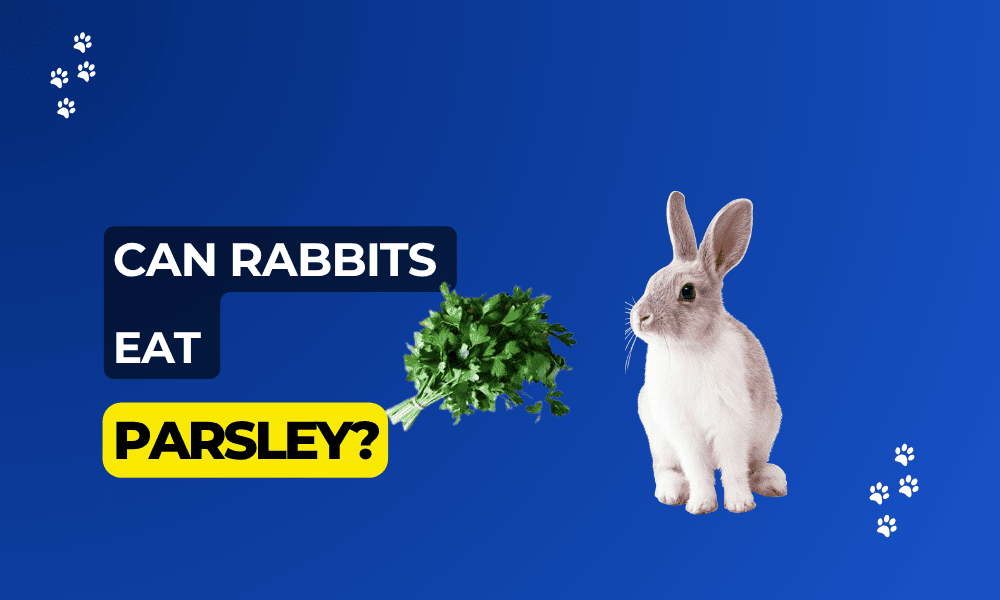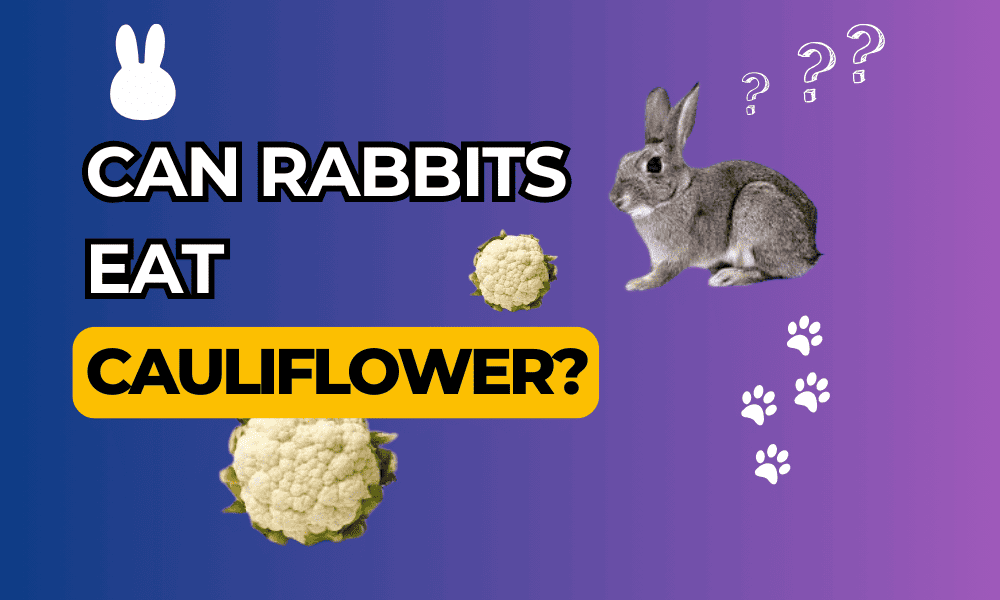
Rabbits are charming little companions that bring joy to any home with their playful antics and twitching noses. If you own a rabbit, you might be wondering, “Can rabbits eat parsley?” It’s a common question, especially since parsley is a staple in many households. One of the trickiest parts of rabbit care is figuring out what foods are safe for them to eat. After all, not everything green and leafy is necessarily good for your bunny.
Parsley is a common herb found in many kitchens, but if you’re a rabbit owner, you might wonder: Is it safe for my bunny? This article delves deep into the topic, providing insights backed by research and expert opinions to ensure your rabbit’s health and happiness.
This guide will cover the benefits and risks of feeding parsley to rabbits, how to introduce it into their diet, and other related topics to ensure your rabbit’s health and happiness.
Understanding a Rabbit’s Natural Diet
Rabbits are herbivores, meaning their diet consists entirely of plants. They naturally thrive on hay, leafy greens and vegetables. In the wild, rabbits primarily consume grasses, leaves and other fibrous plants. Their digestive systems are designed to process large amounts of fiber, which is essential for keeping their gut healthy and functioning properly.
Key Takeaways: Is Parsley Safe for Rabbits?
Yes, rabbits can safely eat parsley in moderation. This herb is rich in essential nutrients like vitamins A, C, and K, as well as calcium and iron, which can contribute positively to your rabbit’s health. However, due to its high calcium and oxalic acid content, excessive consumption can lead to health issues such as bladder sludge or stones.
Relevant: Can rabbits eat oatmeal?
What Are the Nutritional Benefits of Parsley for Rabbits?

Parsley is a nutrient-rich herb that can benefit your rabbit’s health. It provides essential vitamins A, C, and K, along with minerals like calcium and iron. These nutrients support strong bones, a healthy immune system and proper digestion. Here are nutritional benefits of parsley for rabbits:
- Vitamins: Parsley contains high levels of vitamins A, C, and K, which support vision, immune function, and blood clotting.
- Minerals: It provides calcium, iron, and potassium, contributing to strong bones, oxygen transport, and muscle function.
- Fiber: The fiber content aids in digestion and helps prevent gastrointestinal issues.
Incorporating parsley into your rabbit’s diet can add variety and provide these beneficial nutrients.
Health Benefits of Feeding Parsley to Rabbits
Rich in Vitamins and Minerals
Parsley is rich in essential vitamins A, C, and K, as well as minerals like calcium and potassium. These nutrients support your rabbit’s immune system, bone health, and vision.
Helps Support Immune Health
With a good dose of Vitamin C, parsley helps to bolster the immune system, protecting rabbits from common ailments.
Aids in Digestion
The fiber content in parsley is beneficial for maintaining digestive health. Rabbits need fiber to keep their gut functioning smoothly, and parsley provides a little extra boost.
Are There Risks Associated with Feeding Parsley to Rabbits?
While parsley offers nutritional benefits, it also poses certain risks if not fed appropriately. Below are the potential risks of feeding parsley to rabbits.
Oxalates: Parsley contains oxalates, which can contribute to kidney and bladder stones if consumed in large quantities.
Calcium Content: High calcium levels can lead to urinary issues in rabbits prone to such problems.
Pesticide Residues: Non-organic parsley may carry pesticide residues harmful to rabbits.
Digestive Upset: Introducing parsley too quickly or feeding excessive amounts can cause diarrhea or bloating.
To mitigate these risks, feed parsley in moderation, wash it thoroughly, and monitor your rabbit’s health.
While parsley is safe, it’s important not to overdo it. Feeding too much parsley can cause digestive issues like diarrhea. Parsley also contains oxalates, which in excessive amounts could potentially lead to bladder stones. However, when fed in moderation, this risk is minimal.
How Much Parsley Can Rabbits Eat?

Adult rabbits can enjoy 1 to 2 sprigs of parsley a few times a week. It’s crucial to balance parsley with other leafy greens to prevent excessive intake of calcium and oxalates. For young rabbits, introduce parsley gradually after 12 weeks of age, starting with small amounts to monitor for any digestive issues.
Can Rabbits Eat All Parts of the Parsley Plant?
Yes, rabbits can consume various parts of the parsley plant:
- Leaves: These are the most commonly fed part and are generally well-tolerated.
- Stems: While edible, stems are fibrous and should be chopped into small pieces to prevent choking.
- Flowers: Parsley flowers are safe but should be given sparingly and only if free from pesticides.
Avoid feeding parsley roots, as they are not typically consumed and may not be safe for rabbits.
How to Properly Feed Parsley to Your Rabbit
Recommended Serving Sizes
An adult rabbit only needs a small handful of parsley, about 1–2 tablespoons. It’s best to offer parsley as a treat rather than a staple food.
Frequency of Feeding Parsley
You can give parsley to your rabbit 2-3 times a week. It should be part of a varied diet that includes other vegetables, hay, and fresh water.
Mixing Parsley with Other Veggies
Combine parsley with other leafy greens like cilantro, kale, or romaine lettuce to give your rabbit a well-rounded diet. It also keeps things interesting for your furry friend!
Also read: Can rabbits eat strawberries?
How to Introduce Parsley to Your Rabbit’s Diet
Start by offering a small piece to see how your rabbit reacts. Gradually increase the amount over the next week if there are no signs of digestive upset. Always keep an eye on your rabbit’s behavior and stool for any changes.
How to Prepare Parsley for Rabbits?
Proper preparation ensures the safety and enjoyment of parsley for your rabbit:
- Wash Thoroughly: Rinse parsley under cool water to remove dirt and pesticides.
- Cut Appropriately: Chop stems and leaves into bite-sized pieces to prevent choking.
- Serve Fresh: Offer fresh parsley rather than dried, as it retains more nutrients.
- Monitor Intake: Observe for any signs of digestive issues after giving your rabbit parsley.
By following these steps, you can safely include parsley in your rabbit’s diet.
What Are the Signs of Parsley Overconsumption in Rabbits?
Overfeeding parsley can lead to health issues. Watch for the following signs:
- Digestive Problems: Diarrhea, bloating, or gas may indicate overconsumption.
- Lethargy: A decrease in activity levels can be a sign of discomfort.
- Loss of Appetite: Refusal to eat may suggest digestive upset.
- Urinary Issues: Cloudy or sludgy urine could indicate calcium buildup.
If you notice any of these symptoms, discontinue feeding parsley and consult a veterinarian.
Alternatives to Parsley for Rabbits
Looking to switch things up? There are plenty of other rabbit-safe greens you can try:
Cilantro: Low in oxalates and rich in vitamins.
Basil: Offers antioxidants and has anti-inflammatory properties.
Mint: Aids digestion and provides a refreshing flavor.
Romaine Lettuce: Low in calcium and oxalates, making it a safe daily green.
Rotating these greens ensures your rabbit gets a variety of nutrients.
Common Myths About Feeding Parsley to Rabbits
Myth: Parsley is Toxic to Rabbits
This is a misconception. While it’s true that some foods like iceberg lettuce are not good for rabbits, parsley is safe when fed in the right amounts.
Myth: Oxalates in Parsley Cause Bladder Stones
Oxalates can be harmful if consumed in very large quantities over a long period. However, the levels in parsley are generally safe for rabbits, especially when part of a varied diet.
Can Baby Rabbits Eat Parsley?
Baby rabbits have more sensitive digestive systems, so it’s best to wait until they are at least 12 weeks old before introducing parsley. When you do, start with very small amounts and gradually increase.
Preparing Parsley for Your Rabbit
Before feeding parsley to your rabbit, rinse it thoroughly under running water to remove any dirt or pesticides. Opt for organic parsley whenever possible to avoid harmful chemicals.
Conclusion
Parsley can be a healthy addition to your rabbit’s diet when fed in moderation. Its rich nutrient profile supports various aspects of health, but due to its high calcium and oxalic acid content, it’s essential to limit its intake. Introduce new foods slowly and keep an eye on your rabbit’s health. By providing a balanced and varied diet, you can ensure your rabbit remains happy and healthy.
FAQs About Rabbits and Parsley
Can bunnies eat fresh parsley?
Yes, rabbits can safely eat fresh parsley in small amounts. It’s rich in vitamins but should be fed only 2–3 times a week to avoid calcium-related issues.
Can rabbits eat parsley stems?
Yes, parsley stems are safe too. Simply cut them into small pieces to make chewing smoother and safer for your rabbit. Smaller portions help prevent choking and aid digestion.
Can I feed parsley to my rabbit every day?
No, it’s best to rotate parsley with other greens. Daily feeding may lead to calcium build-up and urinary problems over time.
What’s better for rabbits: flat-leaf or curly parsley?
Both types are fine, but flat-leaf parsley is often more flavorful and slightly easier to digest.
Can rabbits eat dried parsley?
Dried parsley is safe in very small amounts, but it’s more concentrated. Stick to fresh parsley when possible for better hydration and nutrition.
Is it safe to grow parsley in my rabbit’s play area?
Yes, as long as it’s pesticide-free. Just monitor how much they nibble—free access can lead to overeating.
What greens should I feed alongside parsley?
Mix parsley with cilantro, mint, romaine, basil, or endive. A mix of greens gives better nutrition and prevents overexposure to one type.
What herbs are not safe for rabbits?
Avoid giving rabbits herbs like chives, onion greens, leeks, and garlic. These can upset their digestion and may be toxic in larger quantities.


